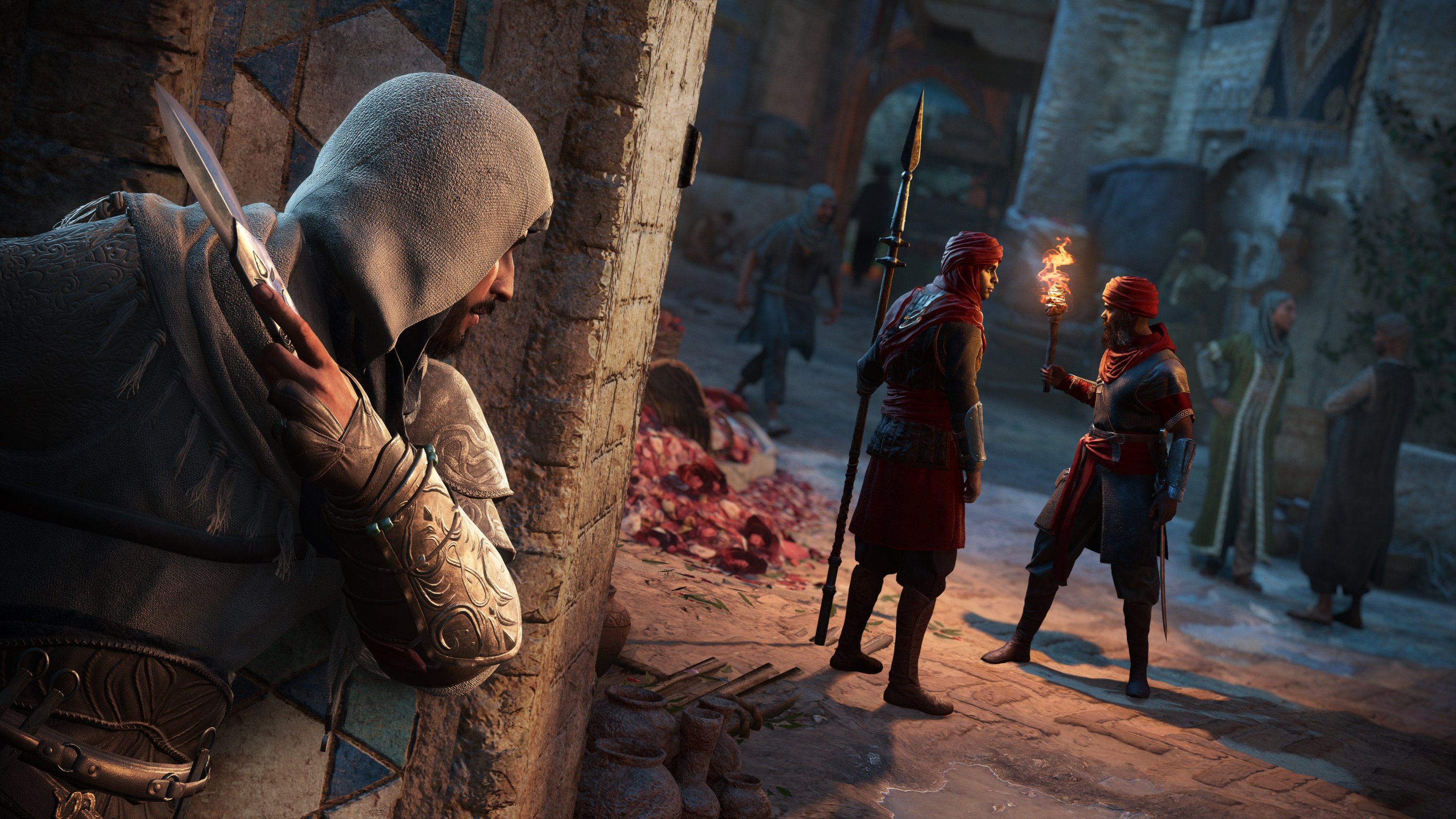© Turkuvaz Haberleşme ve Yayıncılık 2026
Assassin’s Creed has achieved remarkable success in the world of video games. Since 2007, Ubisoft has been immersing fans in different historical periods, enabling them to combat evil forces as skilled members of an assassin’s guild.
It’s become a vast, historically inspired open-world adventure, from ancient Greece to the American War of Independence, with an increasingly complex story of myth and science fiction.
Rich in detail, say some; overloaded, say others. The publisher Ubisoft has taken the latter opinion onboard in the latest version, Assassin’s Creed: Mirage.
Where a lot of spectacle, a huge game world and over 100 hours of gameplay dominated the series in the last few years, Ubisoft has now put on the brakes and with some success: Less really is more in this latest version.
There’s only one game location in Mirage, and the game time is shortened to 15 hours. The latest adventure takes you to medieval Baghdad for intrigue at the caliph’s court. As street thief Basim Ibn Ishaq, players are drawn into a conspiracy that brings them up close with the mysterious Assassin Order.
Basim becomes an apprenticed student who must act from the background against intrigue at the caliph’s court. In the process, he learns secrets that turn his worldview upside down.
At first glance, everything in the game is like it always is in the Assassin’s Creed series: you break into fortresses, take out targets and always stay in the background.
With excellent climbing abilities, Basim swings from roof to roof and hides behind bushes. If an enemy gets too close, he ambushes them.
However, if he is careless and raises the alarm, his adventure is quickly over. Despite his abilities, he is helpless in a direct fight against several enemies.
To help him disappear more successfully, Basim learns new abilities that he unlocks through experience points after a successful mission.
The new abilities include being able to briefly slow down time or take aim at several enemies at once. Stun darts and throwing knives ensure safe attacks from a distance and smoke bombs can be used to blind your opponents. In the right combination, elegant solutions arise for many dangerous situations.
The strength of the game, however, is not just the training and equipment but what Basim does with it. Almost every mission offers different approaches.
Sometimes, he has to create a distraction; other times, he has to lure his target out of hiding by performing certain actions. Occasionally, he can also hire helpers to join the fight with him.
For example, his faithful falcon, with which he scouts out guarded houses or fortresses from the air. The game is varied, exciting and cleverly thought-out. Fans of the predecessors may miss the countless side missions, but they rarely added up to much.
In Mirage, on the other hand, everything is reduced to the essentials. There are one or two side quests, but players mostly follow the story.
This departure from the sprawling open-world design leads to streamlined gameplay that should especially please newcomers to the Assassin’s Creed universe.

The detailed depiction of the historical game locations, on the other hand, has remained the same. In cooperation with historians, Ubisoft brings to life an accurate portrait of medieval Baghdad.
Assassin’s Creed: Mirage should win players over with its visuals and clever, streamlined gameplay. The large fortresses and watchful enemies require serious planning and tactical action.
Based on action alone, this excursion as a hobby assassin will quickly come to an end, but only those who long for the big spectacle of earlier games will be disappointed.
Mirage prefers to build on well-thought-out gameplay rather than lose itself in endless, overloaded expanses in an open world.
